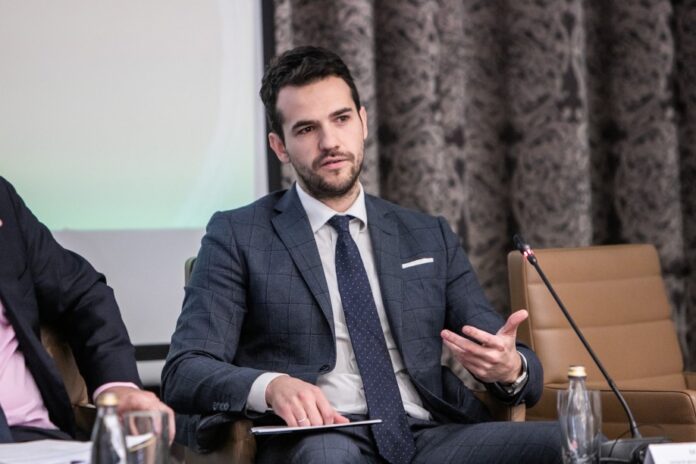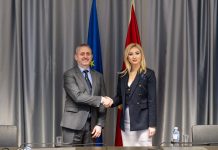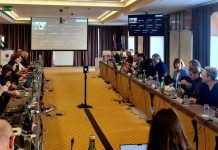The Government of Montenegro has accepted the proposed EU accession methodology that will serve as a good platform for intensifying the reform processes, said Deputy Chief Negotiator Marko Mrdak.
On Thursday (14 May), the Government adopted the information on the new EU accession methodology confirming Montenegro’s acceptance of the new negotiation model.
On this occasion, as a guest in the programme “Europe” on the Radio of Montenegro, Mrdak explained that after the General Affairs Council of the EU accepted the proposal on the new methodology, the Government of Montenegro was ready to give official statement on this matter.
„The new methodology per se can neither slow down nor speed up the process, but it gives us a good platform that we can successfully use for intensifying the reform processes and communication with the Member States. Therefore, by using the new methodology elements we will be able to efficiently step up the reforms and ensure optimal progress“, he explained.
Asked whether Montenegro would be obliged to change the negotiating framework due to the new methodology, Mrdak said that Montenegro had its own negotiating structure and that the framework would not change.
As he noted, it is important to pay attention to the entire context, bearing in mind that since the formation of the European Commission we had clear political messages on the European future of the Western Balkans, and giving importance to the Western Balkans at the height of the health and economic crisis is a clear signal of strong relations.
“In technical terms, the new methodology does not mean much for Montenegro, but in political terms it is a reflection of readiness to build and improve the process through a more intensive dialogue with the member states”, said Mrdak.
According to him, in negotiations it is sometimes difficult to draw the line between the technical and political parts, and essentially the most obvious novelty in technical terms are the clusters and structure of the EC report with clear indicators and responsibilities in all chapters.
“In the political sense, we can single out the more significant involvement of the member states in all phases of negotiations, more frequent summits, ministerial contacts, annual intergovernmental conferences.
Another novelty is also positive and negative conditionality in the current negotiation structure. We are already familiar with the negative one, which is the balance clause, and as for the positive, it refers to the gradual inclusion of candidate countries in the EU policies after the successful results have been achieved,” he added.
Mrdak explained that, when it comes to the impact of clusters on the opening of Chapter 8, no difficulties could be expected, given that Montenegro has met all opening benchmarks and hoped to get the green light from all member states in near opening of this chapter. “We are more focused on discussing the closure of clusters, not opening them. A significant number of chapters, such as Chapters 7, 3, 6 and 28, are expected to be closed in the near perspective“, he noted.
In respect of the budget intended for the Western Balkans, Mrdak pointed out that in the 2021-2027 perspective, EC allocated the greatest budget so far for the Western Balkans countries, amounting to circa EUR 14.5 billion, which is significantly higher than the current budget for the period 2014-2020 amounting to EUR 11 billion.
„Larger allocations are the best confirmation of the EC’s intention to remain strongly active in its neighborhood. We are currently following the intensive EU debate on the preparation of the medium-term budget framework, and I believe that increasing the budget is a very positive message at the moment when one of the biggest contributors, the United Kingdom is leaving the EU. That is a clear signal that the Western Balkans is a priority“, said Mrdak.
As regards Chapters 23 and 24, Mrdak noted that the new methodology made no significant difference in relation to the current negotiating process of Montenegro.
“Montenegro already negotiates according to the most rigid criteria, and everything the new methodology provides for is something Montenegro already implements on a daily basis. Montenegro is familiar with everything the new methodology provides for in the field of the rule law, and colleagues who are in charge of this field have great knowledge that they could share with North Macedonia and Albania for the purpose of stepping up their processes” said Mrdak.
GENERAL SECRETARIAT OF THE GOVERNMENT OF MONTENEGRO
SECTOR FOR INFORMING THE PUBLIC ABOUT THE EU AND THE EU ACCESSION PROCESS







